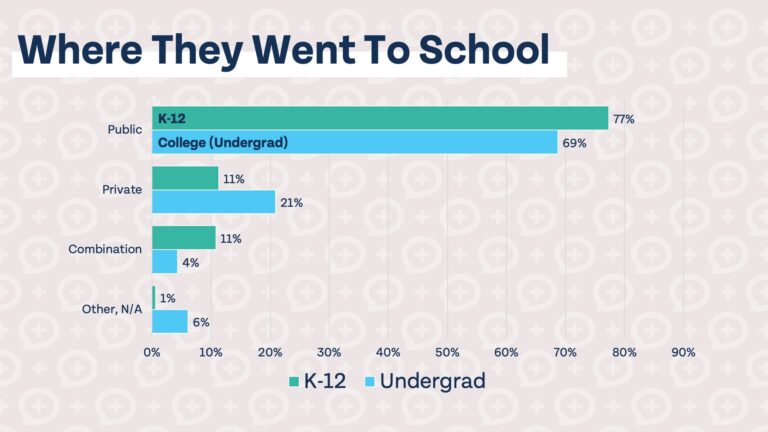I’m excited to get started. We’re going to start it off with Whitten Evans’ question. Did you say Whitten? Whitten Evans. Whitten Evans. That was very—is it two names? Wit and Evan? That’s kind of what I thought—W-H-T and E-V—but it’s not. It’s, you know, kind of typed in a way that I’m Evan. Yeah, it was like one. Okay, let’s just go with Whit and Evan. Okay, keep going. I’m sorry. Good, ready for their question. We’re clean—excellent, so fresh and so clean.
The question is, “I have a car payment of $30,000 over 60 months for 4.85%. I did this before watching y’all. They say I can pay the car off within the next year. Should I pay off the car or save for a down payment on a house?”
So, I think this is the age-old question of what should I do when my car is very clearly not in the 20/3/8 rule. Yeah, and then how should I prioritize these savings and paying off and all of that? Yeah, so a lot of people have this, Bri. They’ll come to us and say, “Hey, I found—you know, I was doing some internet research. I stumbled across 20/3/8, and then I realized, oh man, the car that I bought did not align with those rules. I did not put 20% down, or I financed it for more than three years, or when I look at the payment, it’s greater than 8% of my monthly gross income. What are my options? How do I re[write] that in?” But, Whit and Evan, a question like, you know, “I’ve got this $30,000 loan, 60 months, 4.85%. What do I do to right the ship?” But even above and beyond that, I kind of want to save for a house. How do I balance the different types of debt loads that I may be carrying? I’d be curious to know your thoughts on that.
Did Whit and Evan give their ages? They did not. No ages. Okay, so you know, because the first thing—let’s triage this thing because that’s actually the situation. You’ve realized you’ve already got the car in the garage; you’re in this financial situation. So, we kind of really do have to triage and look at your situation. I have to give the disclaimer: we don’t know all your assumptions, as I just clarified when we don’t know your age, other things. So, this is more of just a general discussion on this, but here’s what I do know.
I would first run your car purchase through 20/3/8 just to know, kind of know where you are, how do we get you out of this and salvage the situation without even knowing where you are in the process. So, we even have a calculator on the website where you can do that. Go to moneyguy.com, check out our 20/3/8 hub, and you can use the calculator to figure out where your payment should be. Now, obviously, you know, down payment’s not going to be—we’ve passed that bridge. You already know; you’ve told us you got 60 months on the financing. We don’t like you going longer than 36. So, I, and then the other part that we don’t know is what is this as a percent of your gross income that’s coming in. So, the first thing you’re going to want to do is let’s go say, “Hey, what does it take to pay this car off in 36 months, not what they finance it at 60 months?” Because there’s a big difference between 3 years versus five, but let’s actually bring it into correct course mode at 3 years. Now, what does that do when you compare that to your gross income?
If it is way beyond your 8%, then we have a problem here; we have a big problem. So now, we have to course correct, and I would then kind of move to the secondary thing, and I’m going to pull it out because you know how much I love this thing; you’ve got to always respect the food. If you go to money.com/resources, you can get your own copy too. We have the financial order of operations because 4.85% doesn’t freak me out for people under 40 years of age, 27. Yeah, so 27 years. So definitely, 4.85 is not the worst rate in the world, especially where interest rates are right now. But if you look at this and you’re way beyond 8%, you know, and you’re not saving, you don’t have emergency reserves, you don’t have Roth HSAs, you’re not doing anything with your retirement accounts, this car is essentially a lead weight that’s bringing you down.
And your financial success is not catching traction, and this is where I think you just rip the bandaid off; you get rid of the car. I know nobody wants to hear that. Now look, there’s going to be a group that you’re just such a financial—because you got me thinking; you—you’re like, “Hey, I could pay this off in the next year.” That means it sounds like you got some money flowing through. So, you have options, actually, if you can course correct because you’re just living in abundance, you’re very good at what you do for a living. You have money coming in; you could actually now pay this loan down to a point that the 20/3/8 works for you. Or you could figure out how you course correct because maybe your income’s high enough that it’s less than 8%. You still could just recalibrate those payments.
Yeah, I love what you said, even though Whit Evans said they could pay it off within a year. If they do know that there’s this down payment, and they know that their cash can make 5%, maybe what you can do is recalculate your payment, pay it off over that 36 months, and whatever excess you have, let that start going towards your down payment fund so that way it’s a best of both worlds, making sure that you are still living inside the confines of the Money Guy Rules. I think that’s great advice. Yeah, you just got to make sure this is not the weight that’s taking you to the bottom of your financial ocean instead of letting you buoy up and—and kind of launch and let the power of compounding interest build wealth for you. That’s great.














